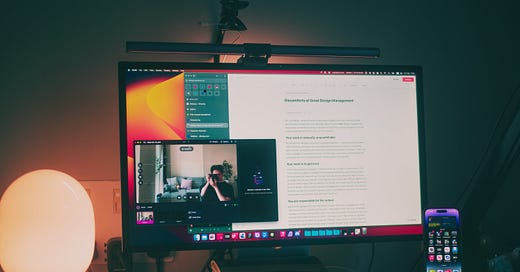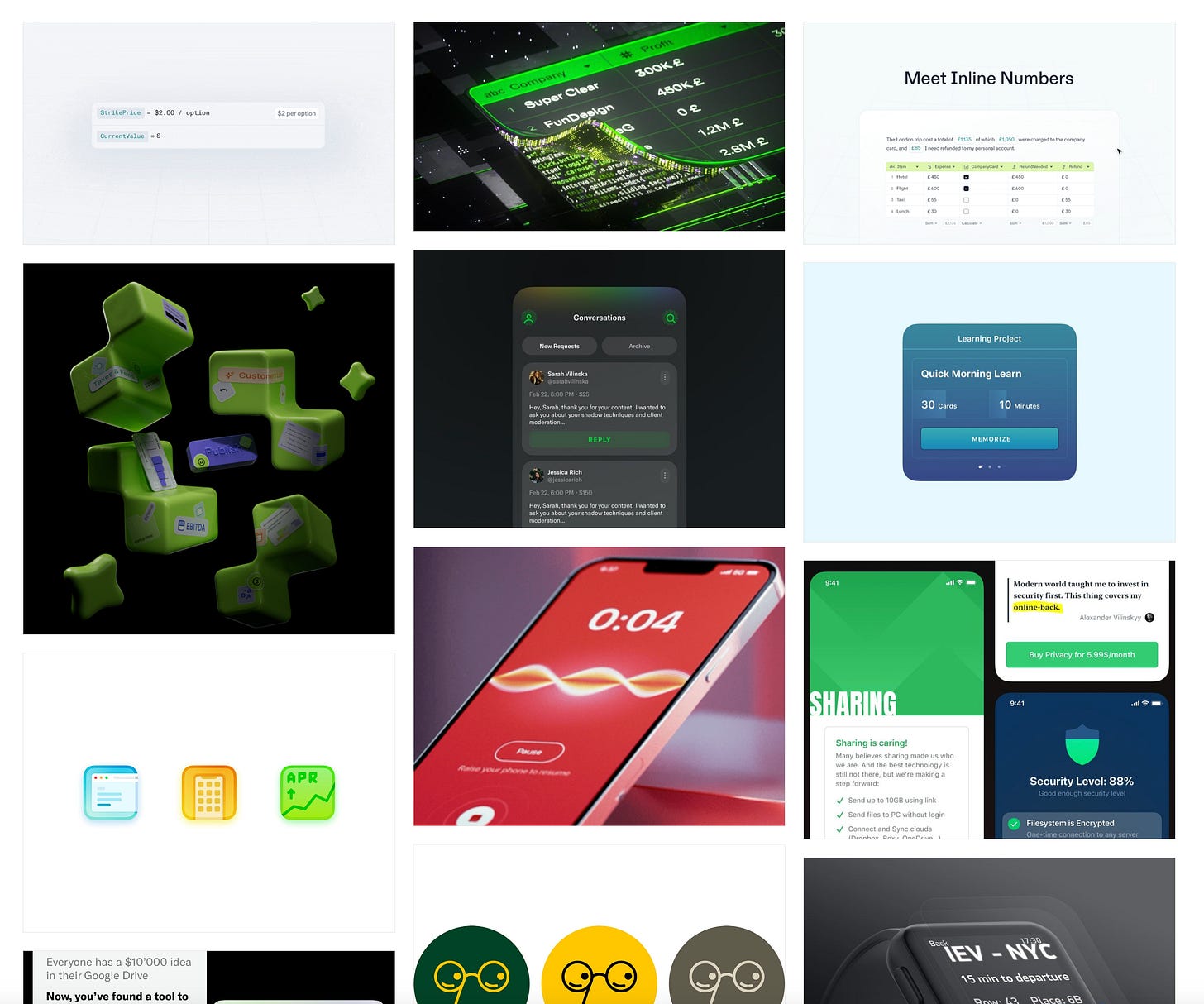I wanted to write an issue about biggest and most surprising things about design management, and especially about the way most design managers fail. I have plenty of experience being a manager or reporting to design managers, so it was a story written by heart and scars, not from the book.
Your work in naturally unquantifiable
You all saw the managers, who want to appear productive — many documents written, many meetings attended, many messages and emoji reactions places. The quantity gives comfort, because the job itself is very hard and impossible to measure. That’s why many managers have anxiety and many of them stay unsatisfied, constantly tired and employed, rather than quickly fired (for a better position for example).
Your work is to get trust
I have a litmus test for managers — where do they put the light in conversations. The most common mistake is managers thinking about themselves, rather than the team. And everyone who reads will say “no way, I actually do care about the team!” but do you really? Will you put yourself in a bad light to save a teammate? Will you fight for the increase in their salary? Will you defend your people, even when they are wrong and you know it? Modern ethics is blurry, but good management is often tied with risk and trust. And the trust can’t be earned in a perfect, warm, comfortable environments. It’s earned in bad situations. How did you dealt with them last time?
You are responsible for the output
Many times managers slip into “facilitation” modes, rather than “management”. They “optimise process”, “build the rails for work”, “allow talents shine”. But truly remarkable managers are responsible for the output. If you took the job with the resources you saw, nothing in the middle is someone’s fault — it’s always yours. Many times in corporate environment you can see how people are “shifting” responsibility to avoid critique, but manager have superpower and privilege to sustain through harder challenges, than IC. And they should exercise it.
Your job is to do both scalable and unscalable practices
It’s going to be controversial, but I think that making “career ladders” and any type of indirect conversations about employee growth is very unproductive approach. “Career ladders” might work for large and very mature organisations, but I rarely saw they work for smaller and medium orgs. And design managers love them, because they call it “scalable and defined”.
The thing is, unscalable work is hard, but it’s usually one of the most valuable ones — always solving something new, speaking to each individual directly, ask uncomfortable questions etc.
Your job should change every week
If you’re good in your job, you will have no weekly routine. Each of your weeks should look different, you will solve new level of problems, you will scale unscalable and spend time on things, that matter. And in modern world and work — it changes every week. I understand the desire to “build a routine”, but I’m conflicted to hear that from managers. If managers are living in routine and stable calendar — they’re probably not adding much value and can (should) be replaced.
You have to cheat
This was one of my advice to a friend. Cheating doesn’t mean doing something bad, but rather shifting mentality to always getting unfairly good outcomes from the situations. Use unique visuals to impress inside and outside viewers. Give your reports unfair advantage like your entry word or any premium products. Use storytelling drama to make people feel at cinema, or interactive puzzles to make them feel like kids.
The things is, designers are incredible cheaters. And understanding how to shape experience of other people (your colleagues, not just users) is a thing, that should be abused. And design managers should know this the best.
You should be authentic
In latin there’s a word “falsus”. People use it differently, but I use it as a “cheap lie”. Designers are the best at spotting it. And cheap lies are always easy to uncover. Many unexperienced managers are falling into using cheap lies daily: with the designers, with leadership team, persuading design system has calculated ROI (they never have), or brand messaging will be closely relatable to user’s lives (they never are). Sometimes they are giving extra comfort and everyone agree to hear them once is a while, but it’s important to avoid bringing them into each discussion and raise real issues:
poor results from research
what users are we planning to disappoint
when founders were doing wrong thing
who takes the responsibility for a failure
Avoid hard talks doesn’t make the work easier, it makes it anxious. And I really want more managers to become authentic, appreciate their positions and act like leaders.
Let’s circle back on this during next quarter.
— definitely someone.
In order to write more stories, I have to catch glimpses of writing inspiration, which is rare. That’s why I can’t plan each piece and “align it to content strategy”, I just write whenever I feel like. Sorry for chaotic or non-systemic vibe of this newsletter. It will probably stay the same for couple of months until I figure out what brings me the most joy to write about.
See you all!
Oh shoot, forgot one thing. I launched Super Images, studio which does the graphics, that AI can’t do — super precise UI, marketing pieces, branded animation, meaningful reports and illustrations. I hired several artists to work with me and the portfolio will be updated regularly. Website: superimages.uk
See you next time.





